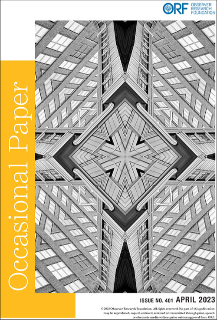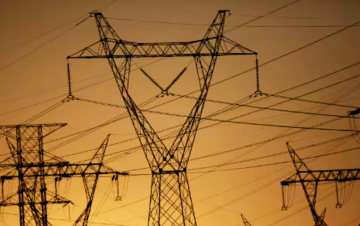The revised Double-Taxation Avoidance Convention (DTAC) with Mauritius will improve transparency in tax matters and significantly reduce revenue loss for the Indian government by curbing tax evasion and tax avoidance, according to Mr. M. Ganapathi, a former High Commissioner of India to Mauritius and a former Secretary (West) in the Ministry of External Affairs.
Initiating a discussion on “India-Mauritius Relations and the Double-Taxation Avoidance Convention” at the Chennai Centre of Observer Research Foundation on June 4, 2016, Mr. Ganapathi recalled that the two nations had signed the DTAC more than three decades ago — in August 1982. It came into effect in December 1983. The agreement, which didn’t have a review clause, was framed with the aim of strengthening the flow of investments between the two countries.
However, the situation changed dramatically after the reforms were initiated in India in 1991 with the DTAC being increasingly misused as a means to evade and avoid tax through treaty-shopping and round-tripping. With no capital gains tax in Mauritius, the Mauritius route as it came to be known, became an important conduit for unaccounted money flow into India. The quantum of revenue loss for India, also a subject of considerable difference between the two Governments, was estimated by some sources at more than ₹22,000 crores.
Mr. Ganapathi said that the main contributions to the Mauritian economy were from sugar, textiles, tourism, financial services and information technology. With constraints faced in the other sectors in Mauritius, the financial services sector was seen as singularly important with the sector contributing to anything upwards of 10 percent towards the Mauritius GDP. The DTAC helped Mauritius develop its financial services industry over a period of time. This also contributed to the country fostering ambitions to establish itself as an international financial services centre.
Two options
With the Mauritius route coming under increasing scrutiny, India proposed a revision to the DTAC. Ten rounds of discussions took place since 2002. Mauritius was reluctant to agree on an amendment to articles dealing with capital gains and limitation of benefits. Instead, it sought Indian assistance in developing Mauritius into an international financial centre.
India was emphatic that the DTAC needed a comprehensive review with amendments to the articles dealing with capital gains and limitation of benefits besides some other articles. At the same time, Indian leaders repeatedly conveyed to Mauritian leaders that India would not take any steps that harmed the interests of Mauritius.
Mr. Ganapathi observed that with the negotiations not going anywhere, the situation came to a point where the Mauritian Government was forced to choose one of the two available options — it could wait until GAAR (General Anti-Avoidance Rule) came into force in 2017, which it felt would harm Mauritius’ interests, or agree for a negotiated revision of the DTAC.
GAAR was expected to come into effect from April 1, 2017 and would have denied tax benefits for transactions and other financial arrangements if they were found to have made only to avoid taxes and not for any other commercial purpose. With no other possibility, the Mauritian side agreed to amendments to the DTAC and the protocol relating to the Amendments was signed on May 10, 2016 at Port Louis.
Provisions and concerns
According to Mr. Ganapathi, the main elements incorporated in the amendments to the DTAC included:
Capital gains: India getting taxation rights on capital gains arising from alienation of shares acquired on or after April 1, 2017 in a company resident in India with effect from financial year 2017-18. Simultaneously, protection to investments in shares acquired before 1 April 2017 has also been provided. In respect of such capital gains arising during the transition period from April 1, 2017 to March 31, 2019, the tax rate will be limited to 50% of the domestic tax rate of India. Taxation in India at full domestic tax rate will take place from financial year 2019-20 onwards.
Limitation of benefits (LOB): The benefit of 50% reduction in tax rate during the transition period from April 1, 2017 to 31 March 2019 shall be subject to LOB Article, whereby a resident of Mauritius (including a shell/conduit company) will not be entitled to benefits of 50% reduction in tax rate, if it fails the main purpose test and bonafide business test. A resident is deemed to be a shell/conduit company, if its total expenditure on operations in Mauritius was less than ₹2,700,000 (Mauritian Rupees 1,500,000) in the immediately preceding 12 months.
Source-based taxation: The other points in the amendment related to source-based taxation of interest-income of banks and updating of the Exchange of Information Article.
Mr. Ganapathi noted that the major impact of the protocol will be in tackling the long pending issues of treaty abuse and round tripping of funds attributed to the India-Mauritius treaty; curbing revenue loss; preventing double non-taxation; streamlining the flow of investment; stimulating the flow of exchange of information between India and Mauritius; in improving transparency in tax matters; and in curbing tax evasion and tax avoidance.
At the same time, existing investments, i.e. investments made before April 1, 2017 have been grand-fathered and will not be subject to capital gains taxation in India. This would allow investors to adapt to the new system.
Mr. Ganapathi said that every government since 2002 had actively impressed upon Mauritius calling for the DTAC amendment but credit is due to the present government for going all out in finalising the protocol. While the Mauritius government has expressed satisfaction with the amendments in the absence of alternatives, the political opposition in that country has raised concerns that it might affect employment in the country.
While speaking of the debate in the Mauritius National Assembly, Mr. Ganapathi said that according to the Mauritius Government, India was expected to provide financial grants for four specific projects to enable Mauritius to tide over any immediate negative fallout of the amendment to DTAC.
The condition attached in this regard was that these projects should be awarded to Indian companies using Mauritius tendering process. Mr. Ganapathi said that this was in line with the common practice followed by the Government of India while offering grants and lines of credits to countries overseas. Of the estimated total grant of USD 353 million, a grant of USD 130 million is to be set aside to develop the financial services sector in Mauritius and assist its sustainable development and progress into a ‘Non-Tax Treaty Centric’ jurisdiction of international repute and substance.
Mr. Ganapathi explained that some experts had expressed their concern about the adverse impact of the amended DTAC on the flow of investments into India. He affirmed that this might not happen particularly because the revised agreement will bring greater transparency into the tax regime bringing a sense of certainty to investors with the coming into effect of GAAR, in less than a year’s time.
Responding to a question, Mr. Ganapathi said that there was always a suspicion on the source of funds through the Mauritius route. This also coloured the perception relating to Mauritian companies having legitimate business dealings in India. He also noted that on the ground, despite zero capital gains tax in Mauritius, the country did have a financial regulatory framework which could be called stringent.
Other DTACs
The success in amending the DTAC with Mauritius should lead the Government to commence discussions with some other countries. Mr. Ganapathi said that with the Singapore DTAC being analogous to Mauritius, the Government has proposed commencement of appropriate negotiations with Singapore. The Netherlands Government has been similarly asked to commence discussions towards amending the India-Netherlands DTAA. Cyprus will also be similarly addressed.
Bilateral relations
Turning to bilateral relations between India and Mauritius, Mr. Ganapathi said that India’s relations with Mauritius were strategic in nature where the mutuality of interest intersected. He noted that with a majority of its population of India origin, political and people-to-people relations were excellent. Commercial and economic cooperation was strong. Mauritius sees itself as a springboard to Africa, which could to certain extent, be used in leveraging India’s relations with Africa.
The entire petroleum needs of Mauritius were met by India. While everyone noted the investments from Mauritius coming up to over 40 percent of inward investment into India, with a fall in amounts recently, India had also contributed significantly by way of investments into Mauritius. Some iconic infrastructure had been developed in Mauritius with Indian financial and project support.
India was closely associated in catering to the defence and security needs of Mauritius. It was involved in providing for EEZ surveillance and anti-piracy patrolling. And hydrography support had been of immense value to Mauritius. India is involved in the infrastructure development of Agalega Islands.
Mr. Ganapathi concluded that despite the amendment to DTAC, Indo-Mauritian relations would continue to be vibrant and strong.
This report is prepared by Raghav Ranganathan, Associate, Observer Research Foundation, Chennai.
The views expressed above belong to the author(s). ORF research and analyses now available on Telegram! Click here to access our curated content — blogs, longforms and interviews.




 PREV
PREV

